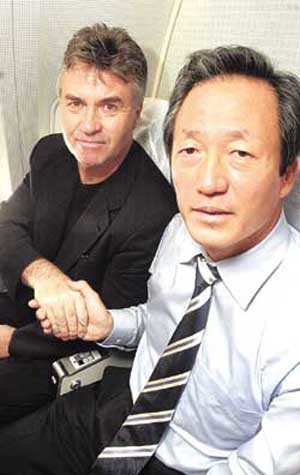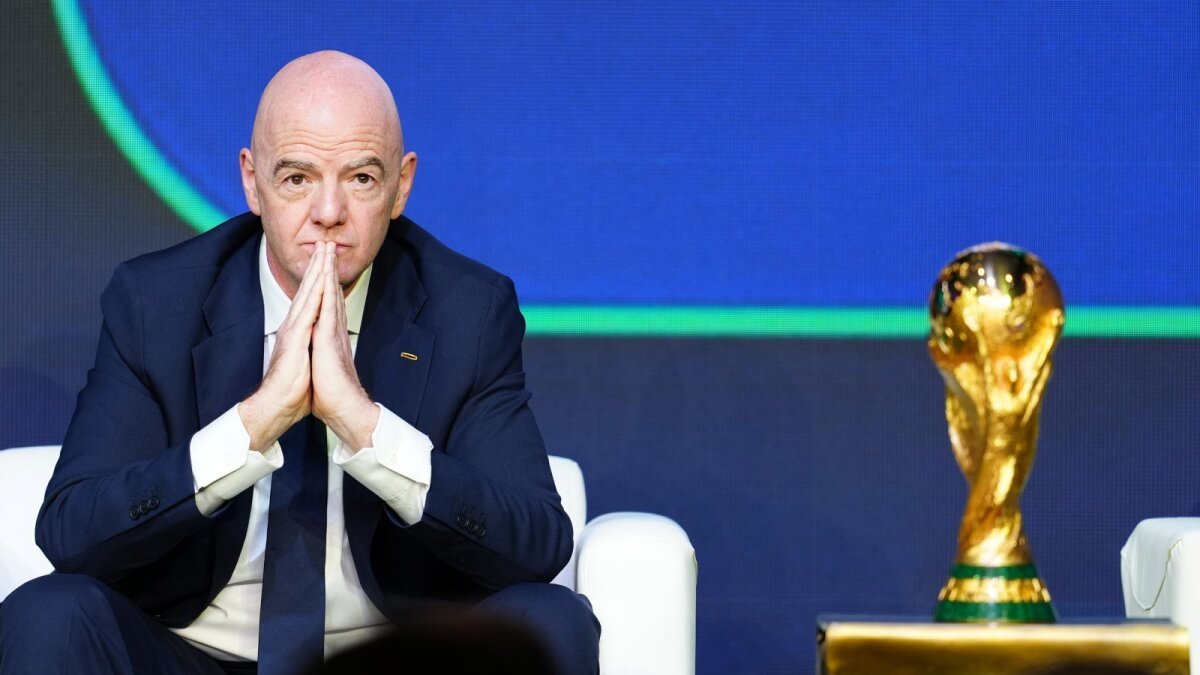Guus Hiddinks Memoirs 2 Building a Relationship
Guus Hiddinks Memoirs 2 Building a Relationship
Posted July. 02, 2002 22:51,

I tried to recall what I knew about Korea before I accepted the position of a Korean teams manager. The first and the last time I saw the Korean soccer team was back in 1998 during the FIFA World Cup in France. Several team members I saw then are still playing in the Korean team I have been raising so far.
At the time, Korean players were a bit too modest and I knew very little about Korea. I tried to get some information on the Korean team as it was the rival of the Dutch team I was coaching at the time, but very few people were familiar with the former. I remember that even the press who tried to gather news about the Korean team actually did not have much to write about at the time. In contrast to the well-known Dutch team I was coaching then, the Korean team remained out of the spotlight most of the time.
After I accepted the offer to coach the Korean soccer team, I had a chance to watch a video with about 30 games played by the Korean team including the Asian Games held that year. On December 20, after the regular game between Korea and Japan was over, I requested data on the advantages and shortcomings of each of the Korean team player. As I was watching the video, I noticed no technical problems; on the contrary, I was fascinated at how easily Korean players were using both feet. So, that made me come to a conclusion that the biggest pitfall of the Korean team was weak physical stamina.
Upon my arrival to Korea I met with the Chairman of the Korea Soccer Association Jeong Mong-jun, who turned out to be a devoted person with clear goals. Chairman Jeong was committed to provide anything I considered necessary for enhancing the physical stamina of the Korean team players saying, Our goal is victory.
And I liked that. I appreciate when people express their goals clearly. You dont need to be humble in setting goals. Expressing ones goals crystal-clearly is good, and the higher the goal the better.
The Korean soccer team has just proved that. The higher the goal the more effort you apply to achieve it. I am really proud of the Korean team who set high goals for themselves and did their utmost to make it a reality.
My first encounter with the players was on January 12 of the following year in Ulsan. At first, I had a hard time communicating with the players. Of course, there was a talented interpreter, but there was too much ice to break between me and the players. But as time went by we became perfectly aware of what each of us thinks and feels.
This year I needed no interpreters to communicate with the coaches and players. The players, as well, felt free to communicate their ideas to me. Though their English is not very good, they managed to express their ideas with just several words they know. I advised my players to study English during recess or at hotels.
At the time, I noticed the lack of communication among the players. Of course I was aware of the Korean social structure and the fact that Koreans respect their seniors. And I deeply respect the Korean society. But they needed to change a bit in order to improve their teamwork. For teamwork to be one hundred percent perfect, there must be no walls between seniors and juniors.
The tradition of having meals solely with people of your age was something I wanted my players to change because having meals with both your seniors and juniors together helps improve communication within a team. I instructed the players to strictly observe the lunch and dinner time so that they started and finished their meals together at the same time. I told them to sit at the table at random, with both seniors and juniors, and banned them from answering private telephone calls during the meal time. The guys felt uncomfortable at first. I had the seniors to go to their juniors and frankly talk about what they were feeling and thinking. When seniors are in the position to give instructions to their juniors, the latter do not have a real chance to show their abilities to the full.
When I was offered the position of the Korean team manager for the first time, I asked an official from the Soccer Association whether the players would obediently climb the tree if I told them to. In fact, I aspired to become a dictator rather than a hero. I wanted to create an organization that worked as perfectly as a machine. And to achieve that, I needed the players to be highly committed. And I needed strict discipline as well. I ordered the players who at first wore any clothes they wanted to wear a uniform when we moved from place to place. The whole schedule was strictly performed in accordance with my watch. For the sake of discipline.
Calling soccer players gentlemanly is a right thing when they strictly abide by the rules and discipline. It was the rules and discipline that made me who I am today.
Of course, the players attached much importance to their privacy. I didnt care that much when Koh Jong-su caused some trouble last year, because it did not happen during our training period. I am completely gratified when the players do what I demand from them on the ground only. The rest of the things should be done solely at their discretion.
Korean players are amazingly pure in heart. They exceeded all my expectations in meeting my demands. Their progress of learning was the fastest I have seen so far. And I am very grateful to them. I was lucky to have a chance to work with such prominent players.
There is one thing I will never forget about my first encounter with Korea. On the day of my first meeting with the players, we dined out together and I was totally unable to use chopsticks.
I hate the smell of garlic. I almost fainted when the coaches offered me to try a living octopus. I still feel sorry for having failed to get used to the Korean food. Maybe, because I was not as much committed as my players were.
Keuk-In Bae Chi-Young Shin bae2150@donga.com higgledy@donga.com





![매일 풀업 60개씩 하는 75세 회장님… “허리 통증도 없어져”[양종구의 100세 시대 건강법]](https://dimg.donga.com/c/138/175/90/1/wps/NEWS/IMAGE/2025/12/13/132956597.1.jpg)

